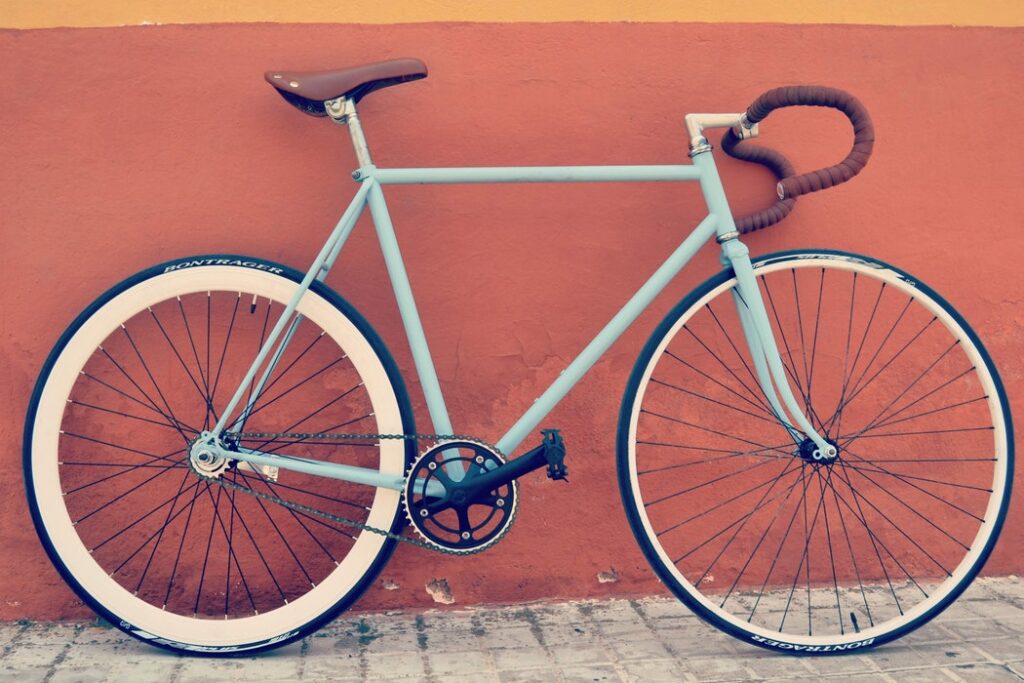While sheltering-in-place we’ve been spending a lot more time baking. And wouldn’t you know: Stressed Spelled Backwards is: Desserts!

I saw that catchy phrase after delivering my 5th batch of muffins in April. To avoid gaining the dreaded Covid-15 (think Freshman-15) I delivered Tupperwares to my neighbor, who appreciates my zero-sugar recipes.
With my last delivery of cranberry-sweetened pumpkin millet muffins, I wrote “sorry for dumping my stress-baked goodies on your doorstep.” She texted back “TY” with a link to “Stress-baking is a real thing!”
My 3 favorite therapeutic benefits to baking:
This “proof of progress” is where I want to focus.
I don’t know about you, but I am:
• losing a sense of what day it is
• not as productive as I was before Covid-19
• feeling less accomplished despite feeling almost as busy
So I reflected on the tools I used before Covid-19:
Here’s why I’m returning to these habits:
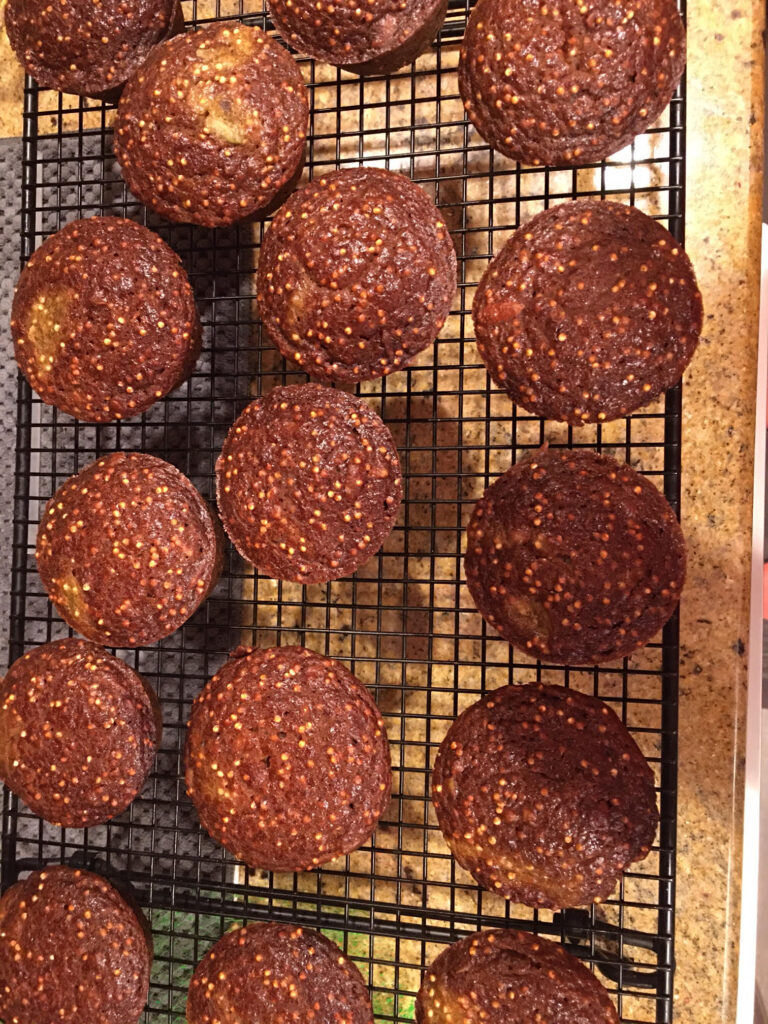
I can’t take credit for figuring out…stressed spelled backwards is desserts!
Sentimental objects are one of the most challenging categories for professional organizers to help clients with. This is especially true with objects related to family history, such as:
Photographs,
Newspaper clippings,
Family history documents (letters, journals, diaries, invitations, etc.),
Education related (book reports, college papers, graduation diplomas, etc.),
Civil records about family members (marriage records, immigration records, birth/death certificates, etc.)
Photos, diaries, papers, trophies…these are all critical elements of your family legacy. They tell the story of important family members, and are the fabric of what binds families together. Personally, I am not an advocate of throwing this all away. On the other hand, how can anyone benefit if these materials are stashed away in the attic, basement, or closet?
The first step to any family history project is taking an inventory of what you have. Even if your project is simply tidying your family history boxes, you will be happy you did it. And I promise, your children will thank you!
Take some time to go through each box carefully and understand what is in them. It’s almost always the case we find things we had completely forgotten about. And it’s not at all uncommon to find objects we thought were lost. Once you know what you have, it will be much easier to figure out what to keep, and how to organize it all.
One complaint I hear frequently is that people don’t really know what to do with these materials. They accumulate and accumulate, taking up more room than you ever would have wanted. The fear of the materials being damaged, and frustration that nothing productive is being done with them, causes most people to feel anxious, along with a good measure of guilt.
Organizing family history materials allows us to honor family members and declutter. As I mentioned, I am not a fan of throwing these materials away. BUT, you’ll be surprised how much space is being taken up by duplicates, damaged papers/photos, old frames, and photos of people you don’t know—all of which can all be thrown away.
And watch out for newspaper clippings! Newspaper paper does not last. Not only that, it can damage other materials it comes into contact with.
The advent of online publishing has made printing books in small print runs very affordable. Imagine having a book of all your parents’ correspondence, and giving a copy to each of your children. Or imagine assembling all the civil records about your ancestors so the whole family can have a richer understanding of its roots and history. All you need is a scanner and a little patience. If you don’t have the time, there are many scanning services which can do this for you. The Association of Professional Photo Organizers is also a great place to find someone locally who can do this.
Once scanned, it’s time to select an online book publisher. There are many to choose from. Two of my favorites are Blurb and Mixbook. Mixbook in particular has some great layouts just for family history projects. Be sure to wait for a sale! Both these sites frequently offer significant discounts.
It probably won’t surprise you to learn that these books become instant family heirlooms. They make terrific gifts for important birthdays or around the holidays.
If you run into a hiccup while organizing, scanning, or making your book, feel free to give me a call. I’m always happy to answer questions. Good luck with your family history project!

As we head into a new month, continued stay-at-home living in most states, with the kids out of school, and a large percentage of the workforce working from home, most of us are starting to wonder just how much longer we can survive through this pandemic. This downtime has been a blessing for some and a curse for others, and right about now, I bet most of you are struggling with staying busy, maintaining a routine and downplaying anxiety. If you have kids, you might be pulling your hair out amidst boredom, complaining and fights. In my house, we have had high highs and low lows. We have moved almost daily from amazing family moments of laughter and warmth to stressful bouts of fighting and discontent. This rollercoaster might look a bit different for each family, but I think there are some things we can do right now to combat the negatives and approach each new day with a sense of accomplishment and hope. None of this is new, but I know that I personally enjoy the timing of a good reminder when I need it the most.
The main thing that I have been working on lately is to be intentional and own my perspective. We all get bad thoughts occasionally, and with the scary things that the media is sharing, it’s no surprise that most of us are being hit with thoughts of worry, anxiety, and fear. It’s human to feel these things, and we shouldn’t necessarily fight them off when they show up. They are sometimes there to warn us against a real danger or protect us from something that might be about to happen. On the flip side, they can also be brought about or intensified by our imaginations or fears, generated from negative experiences in our past. Owning your perspective involves allowing all thoughts to enter and float by, analyzing them to obtain any useful information as they move, and letting them continue their journey out of your brain. Follow up with a positive affirmation, take a step forward anyway, and change the dynamic. The key for me has been to let the thoughts go. Don’t hold onto them, don’t brew over them, and don’t go to bed at night thinking about them. Instead, read a good book, listen to a motivational podcast, pray with intention, or call up a friend or family member to talk about something else. Simply dismissing a thought can feel easier said than done, but I have found that the magic is just as simple as distracting yourself and replacing the thought.
For the first few weeks after the schools closed, my family and I were all sick, so our lives resembled something like those of a pack of wild dogs, scrounging for food and doing whatever needed to stay alive. I joke, but it felt a bit like complete chaos. As we are healing, we are picking up the pieces, getting the laundry done and assessing the inventory of our pantry. Now is the time to reassess the state of your own household and determine things like what supplies are needed, how schedules will change, and who will be responsible for required household tasks. Reinventing and implementing a routine is key for feeling like you have some control over your situation. If you use a family command center or large calendar, erase the scheduled soccer practices and instead schedule a time for things like school or professional work, exercise, chores and free time.
As you acclimate to your family’s new routine, don’t forget to relax and give yourself some grace in this process. Most of us have never lived through a pandemic like this, and it has literally upheaved our lives in a matter of weeks. Most of us have never been trained to navigate in this time, and we are all in the process of figuring things out as we go. If the dishes are dirty and the laundry is piled up, it’s okay. If the kids are not yet in a home school routine, they will survive. If you are using tissues because the toilet paper ran out, everyone will still be fine. Take a deep breath and remember that you are smart, capable and blessed. If a routine or schedule doesn’t work out as you envisioned, change it. The sky will not fall, and you WILL go on to live another day.
I certainly don’t claim to be a therapist or guru in the art of living, but I can confidently claim the title of a real wife, mom, neighbor and professional who is also learning to navigate this strange time right alongside the rest of you. I am finding that readjusting my perspective to focus on the positive, continuing forward momentum, resuming a routine for my family, and giving myself the grace to show up in whatever capacity that I can bring to each day is helping to make great, slightly sweetened lemonade out of this batch of sour, slightly bruised up lemons lying in front of us.

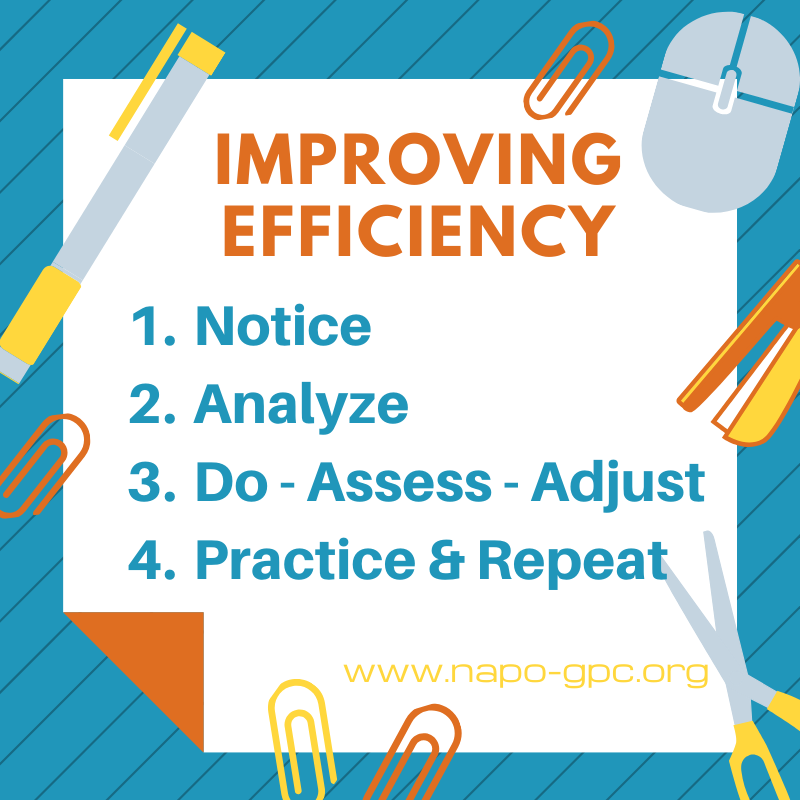
When I think of reducing inefficiencies I think of when I was in college and learned about the time and motion studies of the 1950’s. I envision Lucy and Ethel wrapping chocolate on the production line. And then I think that no one wants to live life with so much constraint that we are more machine than human. However, so many of my clients tell me they want to be more efficient.
I am a big fan of putting rote tasks on autopilot so that our energy can be put towards creative process and enjoying life. I am embarrassed to tell you this (but will because perhaps it might help) but I’m always looking at how to do things in the fewest steps.
I will exemplify this with a task we all do – emptying the dishwasher. I’ve observed many people empty the dishwasher – I do it differently. And I typically get it done in the time it takes to brew 2 or 3 cups of Keurig coffee.
I waste not a moment on something as routine as unloading a dishwasher.
I’ve blogged about all of this and I’ve linked the above questions to those posts. What I’m addressing here however is how to create systems and processes to be most efficient, streamlined, and effective.
Sometimes having a productivity coach or organizing consultant helps. We work with our clients to help them develop the best ways to improve efficiency.
Hello to all my Home Organizer friends!
Some people are intimidated about writing FaceBook posts and newsletters. I am not one of them. I find inspiration for FB posts and newsletters everywhere. For example, whenever one of my network friends posts something on FB or has an article in their newsletter that is relevant to my target market, I forward it to my Virtual Assistant and she posts it with a link their website. This helps build a rapport with my referral partners and gives me a wide variety of topics of interest to my current and prospective clients.
Home Organizers are all inspired by each other. Annette Reyman’s tag line “We get you moved in so you can move on . . . with life!” inspired my tagline “Let me help you catch up so you can keep up.”
I have attached a few photos that I plan to use as part of a future newsletter that will be tied in with my tag line. It will also be used as a FB post and a blog on my website.
The captions will read:
Problem: Samantha is a busy single mom who had never been able to carve out time to get her son’s playroom under control.
Solution: We purged the room of toys and books he had outgrown for four hours. Organizing was a breeze; it only took two hours.
Result: Cameron was thrilled to be able to play with his remote-control toys now that the controls are easy to find. He has taken ownership of his playroom and makes sure his friends and cousins help keep it tidy.
Testimonial: “I learned a different way of thinking. It’s OK to get rid of stuff and not be sad about it. Bobbie educated me with some valuable tips. For example, instead of putting all of my son’s small action figures in one big bucket, she suggested I buy an organizing unit where he can see all the figures and find the ones he wants. He has even categorized them himself!”
– Samantha, Langhorne PA
I also have fun with my FB posts and would like to share a draft for a future post. Perhaps it will inspire you to write something fun of your own.
How Loud is Your Clutter?
Does your clutter whisper, “Psst, I’m over here? I’m getting out of control.” Or does your clutter clear her throat and say “Ahem, over here bud. Pay me some attention.”
Ignore your clutter too long and it will scream out you, “Yo! You can’t ignore me any longer! I’m here, I’m out of control and you need to deal with me NOW!”
If your clutter is verbally abusing you, you need to call me! Let’s schedule a consult and quiet your clutter.
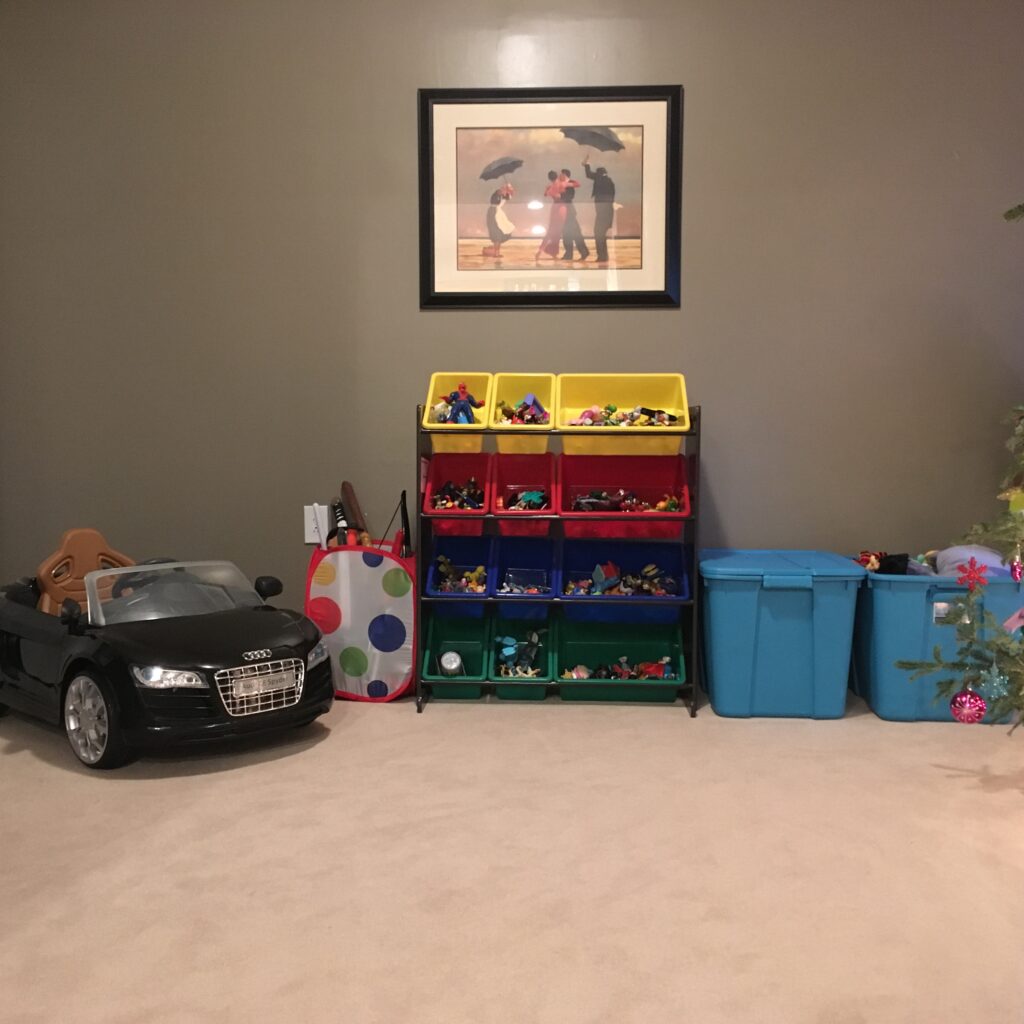
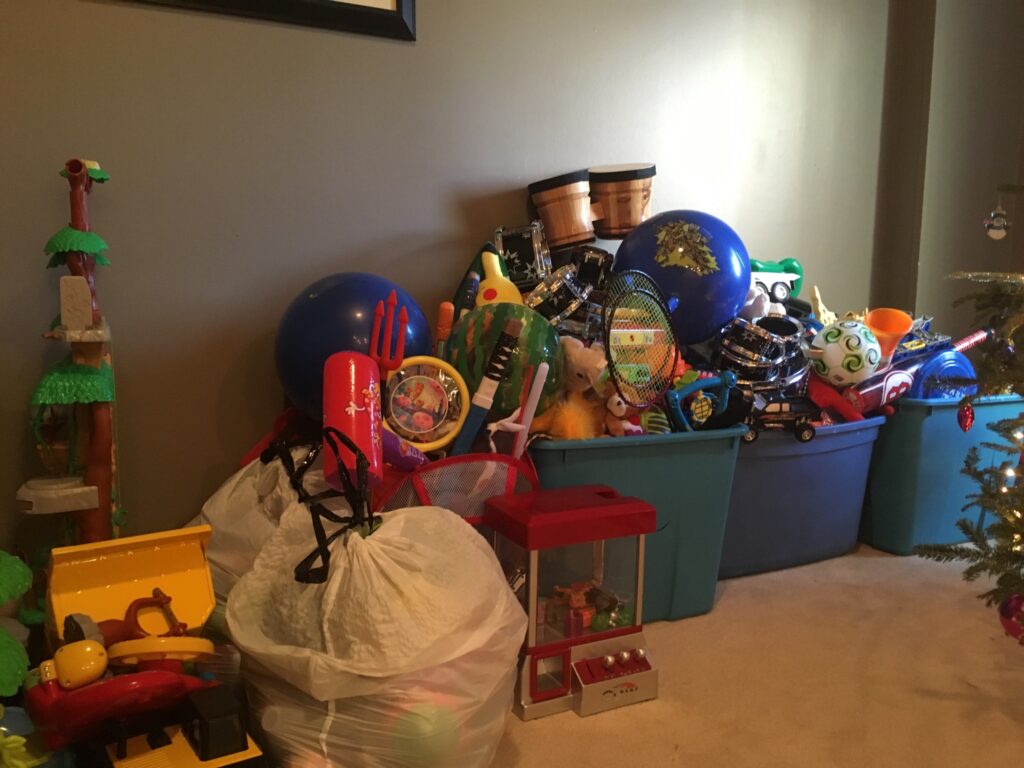
Remember that old saying “it’s just like riding a bike”? I have no idea who coined it, but it was meant to draw a comparison to activities that are deeply rooted in the muscle memory gained from lots of practice. The idea is, if you practiced enough, riding your bike becomes like second nature. If you practice enough, you can train your body to ride with a lot less thought or effort. And if that bike sat rusty in the garage for 10 years, because you had put forth the effort to practice years before, you can jump back on and ride away into the sunset as if only mere seconds had passed since your last pedal session.
People ask me a lot about the best ways to stay organized. Cleaning up and out seems to be the easy part, but now that the house is beautiful, and everything is put away in its place, how do we keep it this way? Depending on how far removed your new organizing behavior is from your old habits, staying organized is going to take the same vigor and endurance as it took to learn to ride that bike years ago.
For example, if you always lose your keys around the house, and we implement a new process to hang them on a hook by the door when you enter, you will need to make the conscious effort to actually do it…every time. It takes practice, and more practice, until eventually hanging the keys on the hook becomes second nature and engrained in your muscle memory. Suddenly hanging the keys on the hook will feel like an easy routine, and the process will no longer be a strain on your brain power and intention as you arrive home tired from work each night. The thing to remember is that there will be work involved. I unfortunately can’t wave a magic wand to “cure” us of our poor organizing habits and replace them with ones that work better for our lives. If I could, I would be the first to wave it over my own house!
There are a lot of schools of thought out there around best practices for forming habits and the importance of considering things like learning styles, motivators and goals. Developing new habits to stay organized will take time, support and accountability from family and friends, as well as a focused desire from whoever is embarking on this mission. I have lots of tricks up my sleeve to help move this process along for each client, but the overarching theme to remember is that practice makes perfect. You are going to have to conjure up the focus, intention and willpower to practice, but once mastered, your new habits really will be just like riding a bike!
